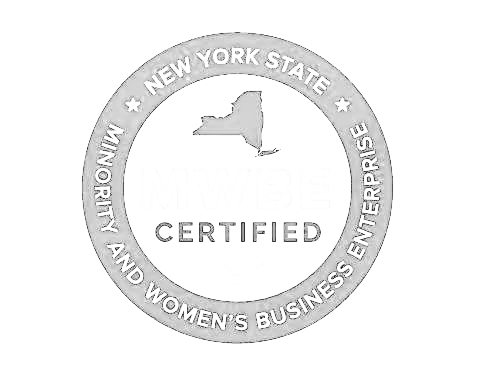B2B SEO Strategy: It’s More Than Just Keywords
Everyone wants to show up first on Google. That’s the goal, right? Ranking high in search is one of the top benefits of building a strong B2B SEO strategy. But most companies go about it the wrong way. They overload on keywords and write for algorithms instead of people. And in the process, they lose what makes their brand actually worth paying attention to– clarity, connection, and credibility.
The importance of SEO for B2B goes beyond technical checklists. What Google rewards, and what your audience responds to, is content that’s clear, useful, and positioned with intent.
Why Writing Just for Google Can Backfire
Let’s be honest: Google is smart. The algorithm knows when your content is trying too hard. If you’re stuffing your page with keywords but can’t clearly explain who you are or what you offer, you’re not going to rank. And even if you do, your bounce rate will tank. Google rewards clarity. Your readers do too. In fact, Google’s Search Quality Evaluator Guidelines state that the experience, expertise, authoritativeness, and trustworthiness (E-E-A-T) of content heavily influence rankings.
Translation? Content that sounds robotic or generic won’t help you. Your B2B SEO strategy has to communicate something meaningful and do it well.
What Makes a Strong B2B SEO Strategy Work
You don’t need to choose between writing for Google and writing for people. The best content does both. But to get there, your foundation needs to be solid. Here’s what your B2B SEO strategy may be missing:
Positioning: Say Exactly Who You Are
Clear positioning makes it easier for both Google and your audience to understand you. When your site clearly says who you help and how, search engines know how to categorize your content, and visitors know if they’re in the right place.
Your brand positioning should answer:
- Who is this for?
- What problem does it solve?
- Why is this solution different?
Strong positioning keeps your message tight. It gives your content a purpose. Without it, your SEO efforts are like a billboard with no headline.
Messaging: Speak Like a Human, Not a Search Engine
Messaging is where you connect. It’s not just what you do– it’s why it matters. Good messaging says: “You’ve got this pain point. We’ve got the fix.” In the context of SEO, messaging helps bridge the gap between keywords and conversion. It ensures your blogs, landing pages, and even meta descriptions feel real, not robotic.
Strong messaging helps with:
- Website clarity
- Better user engagement
- Consistent sales conversations
For example, saying “We design enterprise solutions for growth-stage startups” is clearer than “leveraging scalable platforms for optimized workflow automation.” Google prefers clarity. And your prospects do, too.
Brand Signals: Let the Internet Talk About You
Brand signals are the external indicators that show search engines your company is active, consistent, and relevant. These include:
- Branded search volume
- Social media profiles and activity
- Mentions and backlinks from trusted sites
- Anchor texts that use your brand name
When Google sees your name across channels, it builds trust. That trust = better rankings. According to Moz.com, brand mentions, even unlinked ones, can help influence your visibility on search engines.
How It All Comes Together
Let’s say you run a B2B company that builds customized CRMs for nonprofits. If your website has strong positioning (“We build CRMs designed for nonprofit workflows”), clear messaging (“Spend less time managing data, more time making impact”), and active brand signals (mentions on review sites, LinkedIn posts, etc.), then when you publish a blog targeting “best CRM for nonprofits”– you’re not just showing up, you’re standing out.
The content now aligns with your value proposition. It’s grounded in your brand. And Google can tell.
What Happens When You Write Just for Keywords
What usually happens is you blend in and sound like everyone else. Eventually, you lose the chance to show what makes your business different. That’s a risky move in B2B. Buyers are more skeptical, and decisions take time. If your website, content, and brand feel forgettable, they’ll move on.
A keyword-driven blog without substance won’t drive conversions. But a clear message that uses keywords with intention? That gets results.
Start Ranking Your B2B Brand with a Genuine SEO Strategy
SEO for B2B doesn’t mean sounding like everyone else. If your content is just trying to satisfy the algorithm, it’s going to fall flat. But when your B2B SEO strategy is rooted in positioning, messaging, and brand strength, your content becomes more than searchable– it becomes believable.
Keeping it Fluent with this
Quick Q&A
It’s not just keywords. It’s clear positioning, human messaging, and active brand signals that all work together to support search visibility.
Positioning helps Google (and your visitors) understand who you are. It creates relevance and improves how your pages are ranked and categorized.
Absolutely! Keywords are a must. But they should flow naturally from your messaging and positioning. Keyword stuffing doesn’t work anymore.
Brand signals include branded searches, backlinks, and mentions across the web. They help Google trust your content, and trust leads to better rankings.
Amy Perez
From grassroots and housing non-profit organizations to the B2B tech world and even a sprinkle of B2C law, Amy's experience runs the gamut. She excels at establishing and shaping brands from the ground up, setting the stage for success. That's why she co-founded Fluentica—to support the next generation of brands ready to make waves.
Related Posts
- B2B marketing
- Brand Strategy
- Content Strategy
- Digital Marketing
- Marketing Strategy
- News
- SEO Strategy
- SMB Marketing







